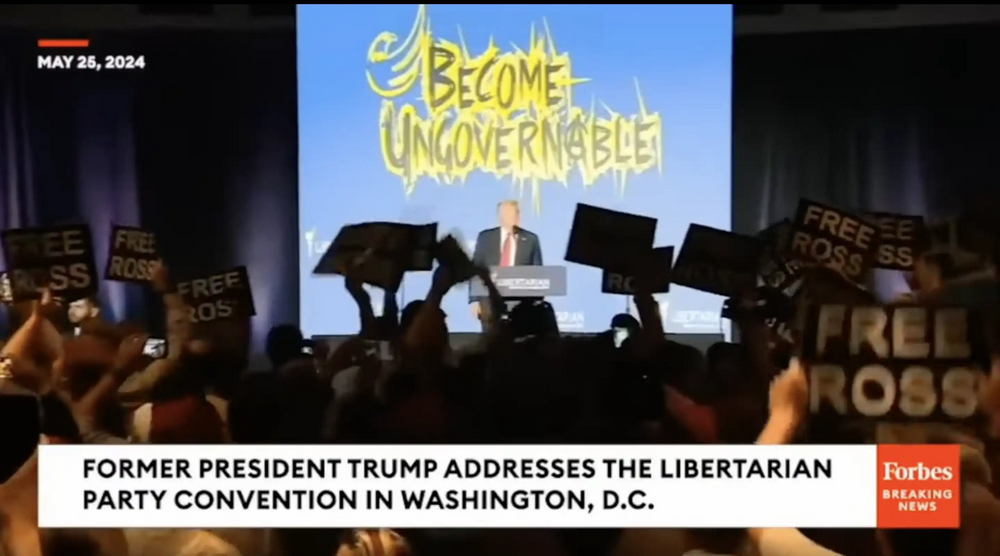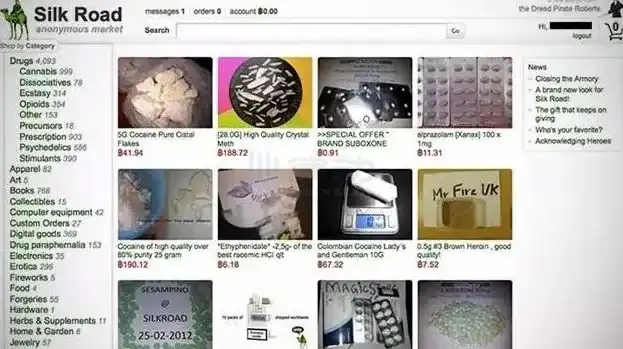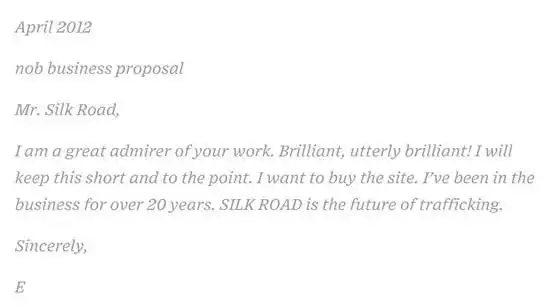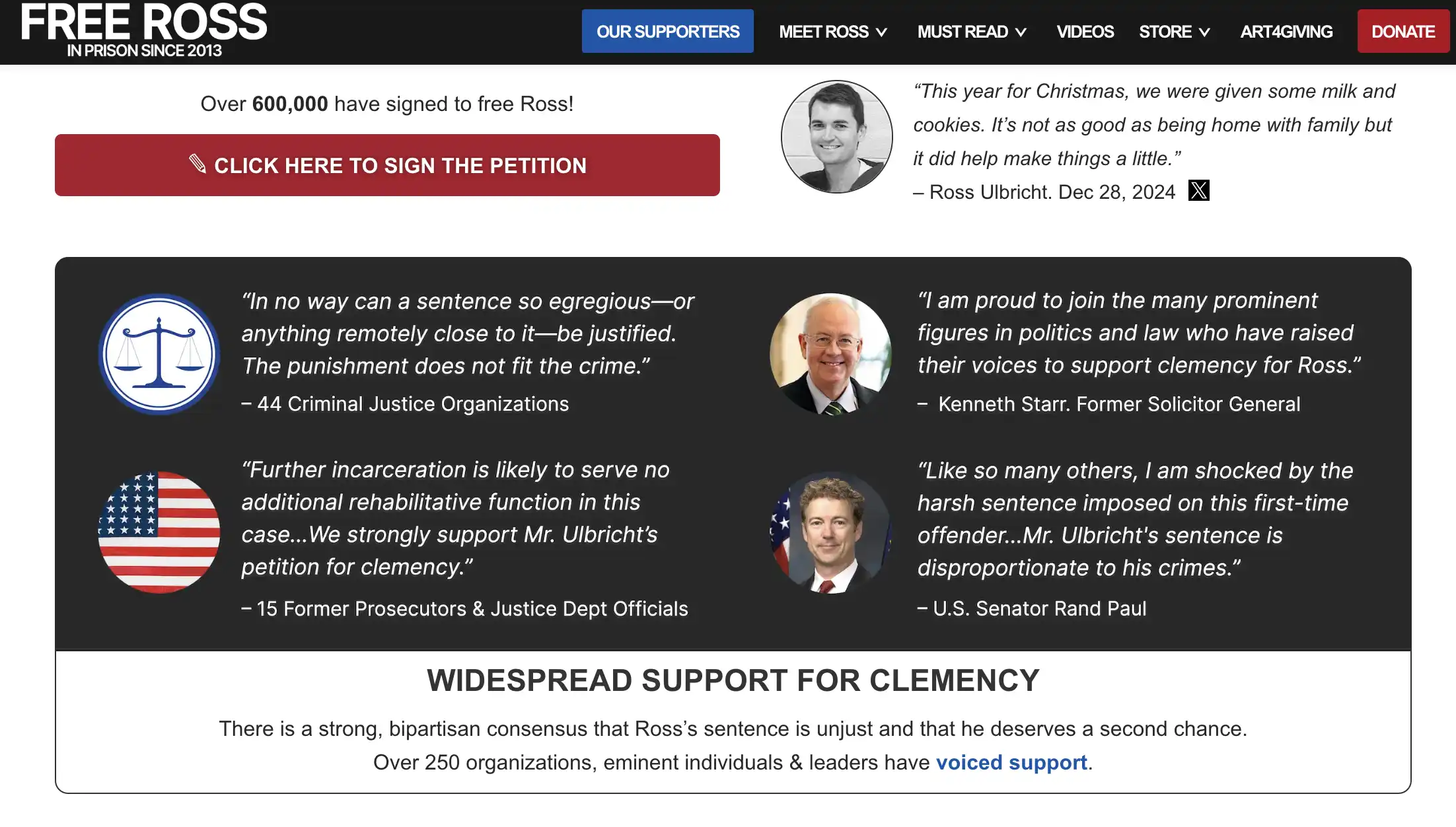Author: Jaleel Jia Liu, BlockBeats
No one understands better than Trump how to use political leverage to manipulate public sentiment.
Recently, Trump has been under some pressure. To circumvent presidential investment restrictions, on the eve of his inauguration in "Goose City," the Trump couple directly issued a cryptocurrency, allowing an entire interest group behind them to achieve "no cost, all profit" at lightning speed.
There can be many who reap benefits in the crypto space, but the president cannot be one of them. Many members of the cryptocurrency community who once supported him have publicly opposed his actions. However, there is another voice from those in the crypto circle dissatisfied with Trump's issuance of cryptocurrency:
"I cannot forgive Trump for issuing cryptocurrency on the eve of his inauguration unless he releases Ross Ulbricht tomorrow."
This reflects Trump's seasoned political tactics. Faced with pressure from the crypto industry, he immediately called Ross Ulbricht's mother, the founder of Silk Road, and personally told this mother, who has been waiting for her son to come home for ten years:
"I have just signed a full and unconditional pardon for your son Ross." Ross can go home.

This was a promise Trump made during his campaign; he promised that if re-elected, he would reduce Ross's sentence or even grant him a pardon on his first day in office. Six months have passed since the Bitcoin 2024 conference, and he has already fulfilled most of his promises made at that time: firing the current SEC Chairman Gary Gensler, appointing a Bitcoin/cryptocurrency presidential advisory council, reducing Ross's sentence or even granting him a pardon, and establishing a strategic Bitcoin reserve for the U.S. government.
Every word and action seems to prove and imply, "I will fulfill all my campaign promises, and the next one might be the Bitcoin strategic reserve." The Bitcoin strategic reserve is undoubtedly the G-spot of the crypto industry, and in this way, Trump alleviated much of the anger from the crypto industry regarding his issuance of cryptocurrency that allowed the interest group to achieve "no cost, all profit."
For those far removed from the crypto industry, it may be hard to understand why releasing Ross could quell the anger of the crypto industry over Trump's issuance of cryptocurrency that benefited interest groups.
To understand this, we must start from 2011, a year that saw many significant events, including the killing of Osama bin Laden and the death of Kim Jong-il. But there were also some events that seemed less important at the time, such as Bitcoin just being born two years earlier. Unlike today's price of $100,000, in its first couple of years, Bitcoin maintained a value of around $0.1.
Although Bitcoin now appears to have a genius design, at that time, it was seen as a useless concept. It wasn't until 2010 that Ross heard about Bitcoin from a customer, marking a turning point.

Ross Ulbricht
In 2011, Ross founded the "notorious" dark web marketplace "Silk Road." Silk Road did not trade tea, silk, or porcelain; it became the most well-known and infamous "dark web" site in history. The primary commodities traded on this site were drugs, sex slaves, child pornography, private assassins, arms trading, and identity fraud.

Screenshot of the Silk Road website, source: internet
To ensure anonymity, Ross designed the site to be accessible only through the Tor onion router (not accessible via search engines, only through special software) and exclusively used Bitcoin as the medium of exchange. The government's crackdown on illegal activities primarily focuses on regulating funds—the core of which is the banking system, firmly controlled by the government. Bitcoin is the payment tool that operates outside the banking system—until now, banks and Bitcoin have remained on separate paths.
With the rise of Silk Road, Bitcoin finally found its first application scenario—as a payment tool for illicit transactions. Data shows that Silk Road circulated over 9.5 million Bitcoins, accounting for 80% of the Bitcoin supply at that time.
To real friends in his life, Ross would say his job was "creating an economic simulator," aimed at using economic theory to eliminate coercion and aggression between people, allowing them to experience what it is like to live in a world without systemic violence.
No one expected that this seemingly sunny and ambitious young man was actually the creator of a major drug empire and the underground evil world. But there are no secrets that cannot be uncovered; several regulatory agencies had already set their sights on him, and even an FBI spy had befriended him for three years.

Ross received an email with a $1 billion buyout offer from an FBI spy, source: internet
Following the internet trail, the U.S. Drug Enforcement Administration eventually discovered Ross's identity, and the moment the FBI arrested him was quite dramatic.
In October 2013, while Ross was using Wi-Fi at a bookstore, the arrest took place. To prevent Ulbricht from deleting or encrypting files on his laptop, a pair of agents pretending to be a couple passed by him and began to argue loudly.
"Curiosity killed the cat," and distracted, Ross turned to look at them. At that moment, an agent quickly snatched his laptop, and two other agents pounced on him to make the arrest. The agents plugged a USB device into the laptop and used software to copy key files; at that time, Ross's laptop was logged into the Silk Road administrator account.
On August 21, 2014, Ross was officially charged with money laundering, computer hacking, and conspiracy to traffic drugs. On February 4, 2015, he was found guilty on all counts. On May 29, 2015, the court sentenced Ross to two life sentences without the possibility of parole for 40 years.
It can be definitively stated that Ross is an extremely important figure in the history of Bitcoin's development. Just as Bitcoin was about to be overlooked by the world, he ended its history as a toy and gave it real-world significance—serving crime.
Just as the consensus of fools is still a consensus, black market demand is also demand. Driven by criminal transactions, Bitcoin experienced its first surge, reaching $31 in June 2011. And two months after Ross's arrest, Bitcoin soared to $1,100.
Due to the practice of liberalism, during Ross's 11 years in prison, there has been widespread support for leniency in society, including from the crypto industry. Many people from both parties believe that Ross's sentence was unjust and that he deserves a second chance. Over 250 organizations, notable figures, and leaders expressed their support, with more than 600,000 people signing petitions for Ross's release.

Today, times have changed. As Trump's chances of winning the election rose on Polymarket (a highly accurate blockchain betting platform), most people believed that Ross might be granted a reduced sentence or even a pardon.
It was also evident in the betting topic on PolyMarket regarding "Who will Trump pardon within 100 days of taking office?" that the likelihood of Ross being pardoned was very high, with his odds rising steadily; for a long time, the probability of Ross being pardoned was 73%.
Two life sentences plus an additional 40 years in prison were indeed too heavy for this young man, who was only 26 when he was arrested.
Now, Bitcoin's price is $105,247, and the U.S. has welcomed its first "Bitcoin" president. Ross, who has been in prison for 11 years, is now 41 years old, and as he walks out of prison, he can finally smile easily at the camera.

The first photo of Ross Ulbricht after being pardoned, source: Bitcoin Magazine
免责声明:本文章仅代表作者个人观点,不代表本平台的立场和观点。本文章仅供信息分享,不构成对任何人的任何投资建议。用户与作者之间的任何争议,与本平台无关。如网页中刊载的文章或图片涉及侵权,请提供相关的权利证明和身份证明发送邮件到support@aicoin.com,本平台相关工作人员将会进行核查。




